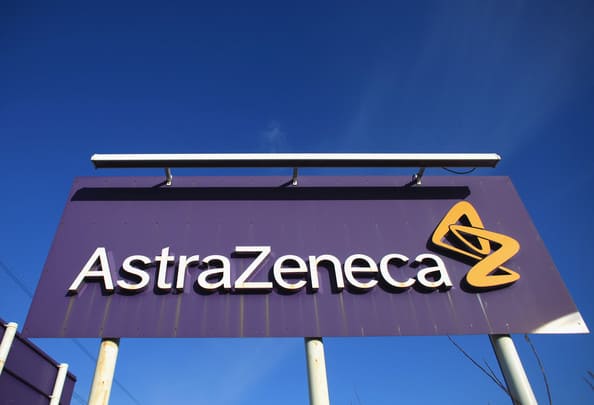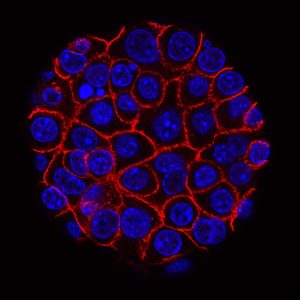
AstraZeneca and MRC partner for new UK facility
pharmafile | March 31, 2014 | News story | Research and Development, Sales and Marketing | AstraZeneca, Cambridge, MRC, Willetts, silicon fen
AstraZeneca and the Medical Research Council have entered into a ‘ground-breaking’ collaboration aimed at better understanding the mechanisms of human disease.
The collaboration will see the creation of a joint research facility at AstraZeneca’s new R&D centre in Cambridge, UK.
The “AstraZeneca MRC UK Centre for Lead Discovery” will sit within the new AstraZeneca site at the Cambridge Biomedical Campus, due to be completed in 2016.
It will see MRC-supported researchers working side-by-side with scientists in AstraZeneca’s high-throughput screening group, identifying new methods to better understand a range of diseases and potential treatment options.
As part of the collaboration, which will run for an initial period of five years, academic researchers will benefit from unprecedented access to over two million molecules in AstraZeneca’s compound library, as well as its high-throughput screening facilities at the new site.
Research proposals will be submitted to the MRC that will independently assess and select the best scientific proposals from a range of therapy areas and diseases. The MRC will fund up to 15 screening projects per year to be carried out at the Centre for Lead Discovery.
AstraZeneca will have the first option to enter a negotiation to license any resulting drug discovery programmes of relevance to the company’s therapeutic areas of interest. If this option is not used, the academics can negotiate with other parties.
Some initial projects may commence as early as 2015, based at AstraZeneca’s existing research facilities.
Pushing the boundaries of science
Menelas Pangalos, executive VP of innovative medicines and early development at AstraZeneca, says: “This major strategic alliance with the MRC is the first of its kind. It will further AstraZeneca’s aim of creating a truly innovative and collaborative research environment at our new site in Cambridge, where our teams will work side by side with world leading MRC scientists.
“Through this collaboration AstraZeneca and the MRC will push the boundaries of science to accelerate drug discovery and the development of new medicines here in the UK.”
Professor Sir John Savill, chief executive of the MRC, adds: “This is a unique collaboration that will give MRC researchers’ unparalleled access to AstraZeneca’s state-of-the-art screening capabilities, world-leading infrastructure and an extensive, high quality compound library.
“The agreement demonstrates the MRC and AstraZeneca’s commitment to long-term investment in UK infrastructure. It is an exciting move that will fast-track research that might not otherwise have been carried out, and will ultimately mean better treatments for patients.”
AstraZeneca’s $500-million corporate headquarters and R&D centre in Cambridge, will put some 2,000 staff within walking distance of university scientists and academic labs when it is completed in two years’ time.
The company announced its move to the ‘Silicon Fen’ in Cambridge, which is also next to its biotech subsidy MedImmune, in July last year.
Last month AZ confirmed its departure from its former Alderley Park R&D site in Cheshire after selling the space to a public-private consortium for an undisclosed sum.
Shoring up R&D
The moving of AstraZeneca to the Cambridge in the east of England forms the centrepiece of a $2.5 billion restructuring plan by the firm’s chief executive Pascal Soriot. The move is a strategic one for the firm, which hopes to tap into the region’s scientific talent and culture.
AZ has been beset by a number of late-stage failures in recent years, including a number of drugs for cancer, which has seen hundreds of millions of dollars wiped off the firm’s balance sheet.
Coupled with this, the company has also been dealing with strong headwinds in the shape of patent expiries, notably for former blockbusters such as the antipsychotic Seroquel (quetiapine) and the looming generic competition for gastrointestinal treatment Nexium (esomeprazole).
The UK’s second largest pharma firm has since 2013 been trying hard to turn around any signs of decline, and the forging of new partnerships seems to be key to its strategy.
Many of these deals have focussed around the UK and in July, AstraZeneca agreed another deal with the university and Cancer Research UK specifically to seek out new cancer-fighting drugs.
Science minister David Willetts said: “AstraZeneca, one of the world’s largest pharmaceutical companies, has signalled a huge vote of confidence in our UK science base by selecting the MRC as their partner of choice for this exciting new collaboration.
“Forging these strong business and academic partnerships supports our Life Sciences Industrial Strategy and is vital in reinforcing the UK’s reputation as a global leader in medical research.”
Ben Adams
Related Content

AstraZeneca shares results for Imfinzi in phase 3 trial for small cell lung cancer
AstraZeneca has announced positive high-level results from the phase 3 ADRIATIC trial, which demonstrated that …

FDA accepts BLA for AstraZeneca and Daiichi Sankyo’s datopotamab deruxtecan for breast cancer treatment
AstraZeneca and Daiichi Sankyo have announced that their Biologics License Application (BLA) for datopotamab deruxtecan …

FDA approves AstraZeneca’s Ultomiris for NMOSD treatment
AstraZeneca has announced that the US Food and Drug Administration (FDA) has approved Ultomiris (ravulizumab-cwvs) …








